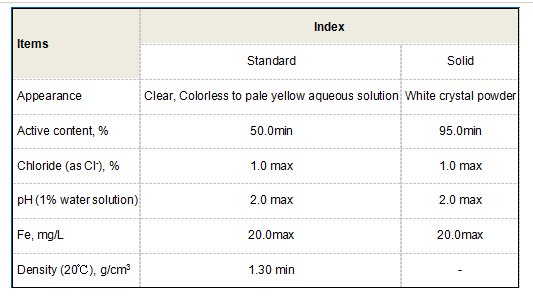scale and corrosion inhibitor
Scale and Corrosion Inhibitors Importance and Applications
Scale and corrosion are two of the most significant issues faced by industries that rely heavily on water systems, including power generation, oil and gas, and manufacturing. These problems can lead to decreased efficiency, increased maintenance costs, and ultimately, equipment failure. To combat these challenges, various chemical additives known as scale and corrosion inhibitors are utilized.
Understanding Scale and Corrosion
Scale refers to the accumulation of mineral deposits, primarily calcium carbonate, magnesium, and silica, on the surfaces of equipment. This build-up can restrict flow in pipes, reduce heat transfer efficiency in boilers and heat exchangers, and necessitate costly cleaning processes. Conversely, corrosion is the deterioration of materials, typically metals, due to chemical reactions with their environment. Factors contributing to corrosion include pH levels, temperature, and the presence of acidic or saline solutions.
Role of Inhibitors
scale and corrosion inhibitor

Scale and corrosion inhibitors function by altering the chemistry of the water or the surfaces of the equipment to prevent the formation of scale and reduce the rate of corrosion. Scale inhibitors, such as phosphonates and polymers, work by interfering with crystal growth of scale-forming minerals, thus keeping them in suspension within the water. This prevents the hard deposits from forming on the surfaces of pipes and heat exchangers.
On the other hand, corrosion inhibitors, such as amines and mercaptobenzothiazole, form a protective layer on metal surfaces. This layer acts as a barrier, preventing corrosive agents from directly contacting the metal and thus slowing the rate of corrosion. In some cases, these inhibitors can also modify the corrosive environment to make it less aggressive toward the materials.
Applications and Benefits
The application of scale and corrosion inhibitors is crucial in various sectors. In power plants, for example, using these chemicals can improve the efficiency of heat exchangers and minimize unscheduled shutdowns. In the oil and gas industry, inhibitors help maintain the integrity of pipelines, reducing the costs associated with repairs and downtime. Moreover, the use of these inhibitors not only extends the lifespan of equipment but also contributes to more sustainable operations by minimizing waste and reducing the need for harsh cleaning chemicals.
In conclusion, the implementation of scale and corrosion inhibitors is essential for maintaining the efficiency and longevity of industrial machinery. As industries continue to face challenges related to water quality and operational efficiency, the development and application of advanced inhibitors will play a pivotal role in ensuring sustainable practices across various sectors.
-
lk-319-special-scale-and-corrosion-inhibitor-for-steel-plants-advanced-solutions-for-industrial-water-systemsNewsAug.22,2025
-
flocculant-water-treatment-essential-chemical-solutions-for-purification-processesNewsAug.22,2025
-
isothiazolinones-versatile-microbial-control-agents-for-industrial-and-consumer-applicationsNewsAug.22,2025
-
scale-inhibitor-key-solutions-for-water-system-scale-preventionNewsAug.22,2025
-
organophosphonates-versatile-scale-inhibitors-for-industrial-water-systemsNewsAug.22,2025
-
scale-and-corrosion-inhibitor-essential-chemical-solutions-for-water-system-maintenanceNewsAug.22,2025





